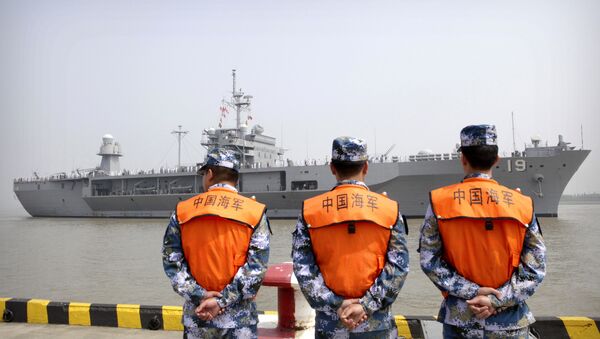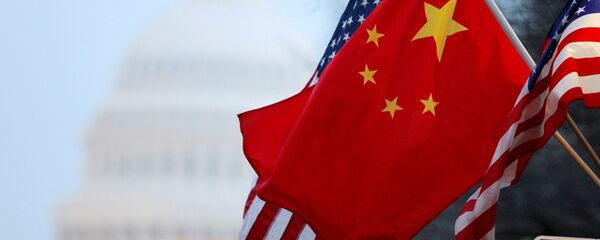"Under Trump, increasing tensions risk spiraling out of control and building up like an avalanche. This is the new quality of relations between the US and China," Russian political analyst and military expert Vasily Kashin told Vzglyad.
The analyst added that Trump was correct in maintaining that Obama's strategy in the Pacific was not sound, but warned that the current US president "does not always have the knowledge" necessary to understand the implications of his actions.
"It is evident that Trump tends to question fundamental truths which everyone has long agreed not to discuss," he added, referring for instance to the "One China" policy.
The "One China" policy has been at the heart of the bilateral relationship since the 1970s when Washington cut formal ties with Taiwan and established diplomatic relations with Beijing. President Trump's phone conversation with Taiwan's President Tsai Ing-wen marked a departure from this policy, angering Beijing. His criticism of China's trade policies and activities in the South China Sea has also done little to alleviate tensions.
These developments prompted Theo Sommer, a German newspaper editor and intellectual, to warn that a threat of war was emerging in the Pacific. "It is there that China, the rising world power, and the United States, the hitherto hegemonic power, are competing for supremacy the old-fashioned way," he wrote for Die Zeit.
"It remains to be seen whether ominous actions will follow ominous rhetoric. But peace is unquestionably more fragile in Asia than in Europe," he added. "In the Pacific, there is a Cold War between China and the United States which could overshadow the entire first half of the 21st century. And it cannot be ruled out that the confrontation would turn into a hot war either on purpose or because of an accident."
Never miss a story again — sign up to our Telegram channel and we'll keep you up to speed!



